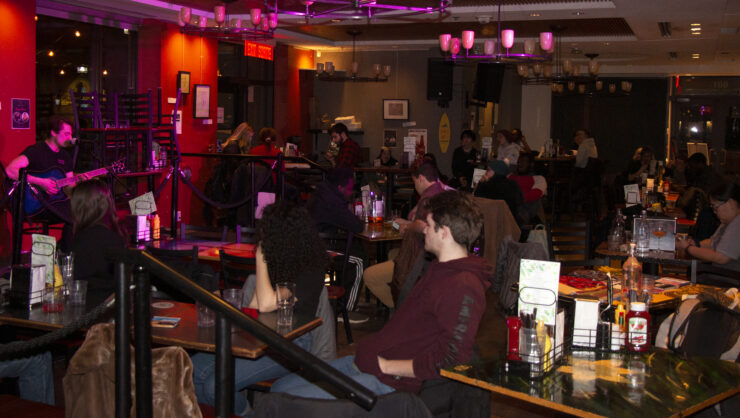Week featured fair trade food, bake sale, and advocacy
Fair Trade Campus week ran from Sept. 25-29 at the University of Ottawa, raising awareness of fair trade practices here in Canada and across the globe. Fair trade centres around two benefits to farmers: a set minimum price for their goods, and a premium awarded to co-ops that the community can use for health care, education, or infrastructure.
The guaranteed minimum price helps protect farmers from the vagaries of the world market, as it assures them that they won’t have to sell their products for a loss.
“All coffee is considered the same thing, it just goes out there on the world market, the lowest price sets the price. So, if it’s a bumper year in Vietnam for coffee they’re going to be selling their coffee cheap because they have a surplus. Colombia was a bad year and now they can’t get the price that they deserve,” said Maryann Moffitt, the dietician and food liaison officer for the U of O. “The goal of fair trade is to lift communities out of poverty.”
Fair trade is also concerned with gender equality and worker’s rights. Fairtrade International—the governing body that sets fair trade standards—makes sure that all voting bodies in co-ops are 50 per cent women and that employees do not work in hazardous conditions.
The U of O is the seventh fair trade post-secondary campus in Canada, a recognition it received after meeting a set of standards focused around three products—coffee, tea, and chocolate. The campus received fair trade status in 2014.
“We have to offer exclusively fair trade coffee, we have to offer at least three fair trade teas wherever tea is sold, and we have to offer at least one fair trade chocolate bar wherever chocolate is sold,” said Moffitt.
Brands are exempted from the fair-trade rules for campuses, but Food Services must abide by those standards.
The university goes beyond these minimum standards. All the coffee and tea in the Dining Hall is fair trade, and the campus offers about 10 varieties of fair trade chocolate bars, purchased from the fair-trade worker co-op La Siembra, the makers of Camino chocolate.
Food Services practices sustainability in many other ways, too. The Dining Hall is the first in a Canadian university to be certified as a Green Restaurant by the Green Restaurant Association, an organization that looks at energy usage, water, pollution, and more. They sell used cooking oil for biofuel, compost all leftovers, produce no landfill waste, and donate unused food to charities.
The Fair Trade Committee does not currently have significant student involvement, but Moffitt encourages groups on campus who want to help with fair trade to reach out to her.
“We don’t have that student engagement piece built into our committee,” Moffitt said. “So that’s why I’m kind of looking for student groups who already have this as a topic who want to liaison with me and be that part.”





